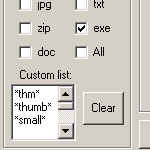When it comes to building custom WordPress applications, plugins, or themes, one of the things that I’m a big proponent of doing is maintaining the native WordPress admin look and feel.
That is to say that I am not a fan of introducing option pages or other elements that deviate from the styles that WordPress core provides.
Case in point: Theme settings pages should match the same theme as the rest of the settings pages in WordPress. There shouldn’t be any major deviation in color scheme, font, or the way certain elements function. By that, I mean tabs should work without any fancy animation, and so on.
But there are times when modifying core user interface components that enhance the experience and that do deviate slightly from the core native WordPress core styling.
In those cases, is deviating from WordPress core acceptable?





